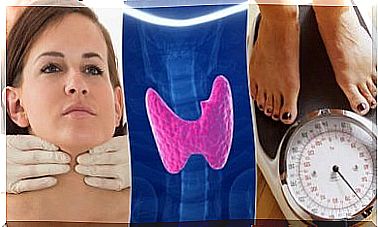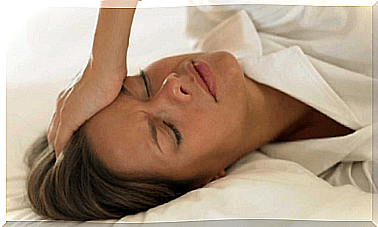Sleep Inertia: Why You Wake Up Tired

Many people feel tired when they get up, despite having slept the number of hours that specialists recommend. Their brains fail to think clearly and their bodies are clumsy. It seems that they have suddenly been taken over by clumsiness and bad mood. What they experience, however, is not an unusual phenomenon. It is a problem known as sleep inertia.
Science began to disseminate data on sleep inertia in the 1960s. They discovered that it is a temporary state of reduced cognitive ability and alertness, which generally lasts for about an hour after the person gets up.
However, this period varies based on the case. Some people experience it for fifteen minutes and others experience it for an hour or even longer. Specialists believe the duration is related to the sleep phase, which was interrupted when the person woke up.
Characteristics of sleep inertia

This period of awkwardness and bad mood after sleep is characterized by a significant reduction in the typical alertness of the awake person. There is a greater increase in drowsiness and poor performance in the brain.
Likewise, one may experience irritability, intolerance, bad mood and even conditions with depression. Sleep inertia may be accompanied by general disorientation and confusion.
It is a phenomenon that affects the normal mental and physical tasks and causes a decrease in reaction time, poor short-term memory and very slow thinking. It’s almost like jet lag.
Clumsiness and bad mood when waking up: A medical issue
Contrary to many people’s beliefs, it’s a medical issue and not a question of personality when you experience clumsiness and a bad mood when you get up. The American Academy of Sleep Medicine has actually included sleep inertia on the list of types of insomnia and sleep disorders.
Sleep inertia affects adults and adolescents on an equal footing. Age is therefore not the reason why people suffer from it. Rather, it may be an issue associated with modern life that has distanced itself from natural cycles and does not respect the circadian rhythm.
Circadian rhythm is the physical, mental and behavioral changes that follow a daily cycle in direct connection with light and darkness. Some theories say that it has affected our sleep that we have ruined the natural cycle of getting up at sunrise and that we sleep with artificial lighting such as from TV or other screens.
During sleep inertia, the brain performs activities that are typical of the phases of deep sleep. Some studies therefore say that there is a relationship between circadian rhythm and sleep inertia. This would explain sleep inertia, after the brain wakes up during the repairing sleep phase, from our biological clock.
Information you should keep in mind

Although sleep inertia seems to be harmless, as it only exposes the people they live with to clumsiness and bad mood from those who suffer from it, however, it can be more than that. Scientific studies have shown that if sleep is disturbed during a deep phase, then the performance of the brain can drop drastically.
This poor performance in the brain, slow reactions to daily situations and problems overcoming drowsiness can be risky for certain professions. Employees who take a nap at work expose themselves to the sudden disruption of their sleep and experience sleep inertia, which can be a risk to others.
Although researchers have not found any effective ways to prevent sleep inertia and thus avoid this clumsiness and bad mood when waking up, they recommend maintaining a strict sleep hygiene.
Such hygiene includes, among other things , sleeping between seven and eight hours a day without disturbance. It also does not include sleeping with television or computers in the room. Lastly, it is important to make a routine. You should also avoid consuming stimulants (such as coffee) before going to bed.









